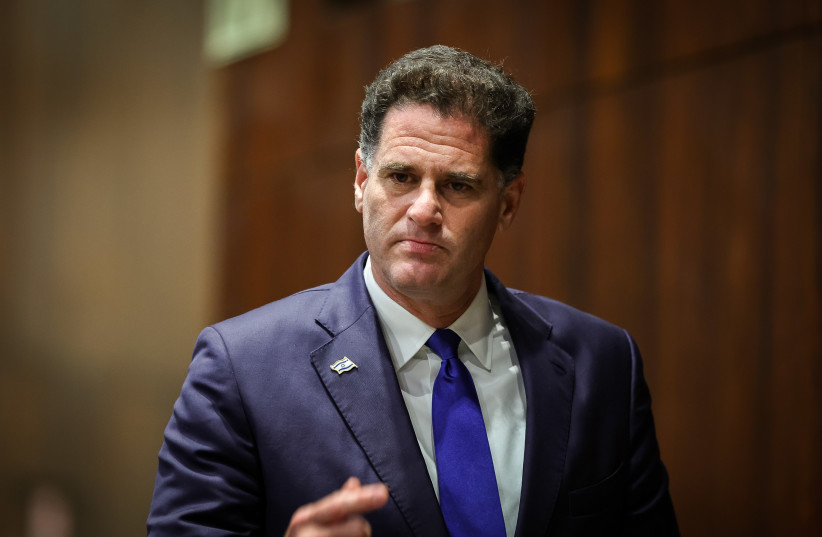Once upon a time, Israel’s Foreign Ministry was in charge of a good part of Israel’s foreign policy.
True, the Mossad ran relations with countries with which Israel did not have formal ties, and the Prime Minister’s Office took the lead regarding relations with the US. Still, when it came to classic Foreign Service work – including managing ties with the world and public diplomacy – the Foreign Ministry ran the show.
When Prime Minister Benjamin Netanyahu took power for the first time in 1996, there were 23 ministers in his cabinet, but only one – the foreign minister – was in charge at ministerial level of the country’s foreign relations. Today, Netanyahu’s government numbers 29 ministers, with fully five dealing with functions traditionally under the Foreign Ministry’s purview.
You have Amichai Chikli dealing with relations with Diaspora communities, Education Minister Yoav Kisch in charge of regional cooperation, Justice Minister Yariv Levin also serving as intelligence minister, Ron Dermer as minister of strategic affairs, and now Galit Distal Atbaryan serving as minister of information inside the Prime Minister’s Office.
While this explosion of ministries might be good politically for Netanyahu in that it provides senior positions and prestige for loyalists, it is not necessarily good for the country. How does that old adage go: “Too many cooks spoil the broth”?

Why does Israel need so many foreign ministers?
When it comes to setting policy affecting foreign relations – be it trying to expand the Abraham Accords to fighting the Boycott, Divestment and Sanctions movement, and setting the principles of the country’s public diplomacy – if you have five different ministers dealing with the various issues, they will inevitably pull in different directions.
For instance, Distal Atbaryan said this week that she wants to move the country’s public diplomacy to be less about Israel’s great music scene and tremendous innovation, and more about how it is not occupying anyone’s land.
Such an emphasis, however, runs against years in which the Foreign Ministry has been trying to re-brand Israel, and present it to the world as a modern, hip country full of good food, great sights and gay rights, deemphasizing the conflict with the Palestinians. The idea was that when people abroad think of Israel, they should think of sun and fun and hi-tech, not war and terrorism. By emphasizing that Israel is not occupying any land, Distal Atbaryan is bringing the emphasis back to war and terror.
That is only one example. Does Israel need a Diaspora Affairs Ministry when it has a department in the Foreign Ministry in charge of Diaspora affairs, as well as the Jewish Agency, which deals with Jewish communities abroad? Does it need a Regional Cooperation Ministry, when the Foreign Ministry has eminently capable diplomats well-versed in the region? And how exactly is strategic affairs not something that should come under the Foreign Ministry’s umbrella?
The cannibalization of the Foreign Ministry did not start with Netanyahu. In fact, it began in 1999 with Ehud Barak, who created the Regional Cooperation Ministry as a place to put his political rival at the time, Shimon Peres. Ariel Sharon then added a Jerusalem Affairs Ministry to the mix in 2001, taking that issue out of the hands of the Foreign Ministry. And Ehud Olmert, in 2005, created the Diaspora Ministry for Isaac Herzog.
Netanyahu did not invent this particular wheel but he has “perfected” it, with there now being five different ministries having responsibility over areas that the Foreign Ministry is perfectly capable of dealing with alone.
Besides what will surely be mixed messages, the parceling out of the ministry’s responsibilities leads to demoralization within it, as its employees feel increasingly irrelevant.
One sardonic joke among Israel’s diplomats for years is that the Foreign Ministry should be renamed the Ministry to Deal with Israelis in Distress Abroad because that is all it is left with.
If this was the feeling in the past, it is even more so the feeling today. And it is a shame. Israel’s Foreign Ministry is full of capable people who should be allowed to do what they were trained for. Israel, which faces considerable challenges on the world stage, needs unified marching orders on how to deal with the world coming from one source – not multiple officers giving different orders sending their troops in different directions.
